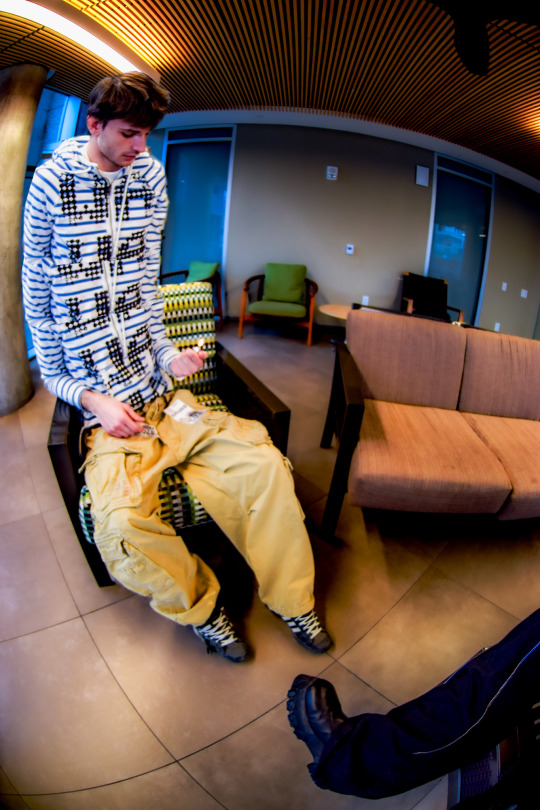#Digital Dream Utopia
Text
Our future could've looked like this//MUSIC RECS #7 ‧₊˚🖥️彡




#frutiger aero#2000s#early 2010s#2000s aesthetic#2000s nostalgia#2010s nostalgia#Digital Dream Utopia#Web 2.0 Gloss#aesthetic dump#Spotify#marill's music recs ⋆。 ˚༘ ♫#song recommendation
7 notes
·
View notes
Text

|3ℓ00/\/\
...ɨռ⊺օ քօֆ⊺-ǟքօƈǟʟʏք⊺ɨƈ ʊ⊺օքɨǟ
°•°•°•°•°•°•°•°•°•°•°•°•°•°•°•°•°•°•°•°•°•°
#utopia rising#digital talisman#reblog to open cyber nodes in the digisphere#metawixen#remember: you are all gods#architect reality#hack the matrix#bloom#a new world is being created from exotic matters#astral dream travel hyper charged visual
5 notes
·
View notes
Text
My Therapist Told Me To Write This.
I am not one for words but I was advised by my old therapist that I should stop being so quiet and to finally start to speak and share my thoughts and views to the masses.
I am going to be 30 this year and I feel as a once child of ADHD to now an adult with adhd has truly grown my hopes and dreams, I know I have grown and changed as a person through my years but I know one thing is for sure, my inner spirit, innate need of justice, my empathy and wanting to understand and bond with others of all backgrounds has only grown stronger in me.
"you've become more angry lately" is a quote I have been told multiple times in my life, I know I am angry, I am frustrated with how America and the world in general has become. and ever since October 7th, my veil has finally been lifted from my eyes and I can fully see what I was hidden from and could only barely peek out at from underneath.
#I am not sure how to tag this but I know I want to make this a series of entries...journal entries#MTTMTWT#utopia#dreams#digital journal#socialism#communism#anti capitalism#radical#I guess this is me standing on my soap box if you care to listen I welcome all.#possums diary
0 notes
Text
Autoenshittification

Forget F1: the only car race that matters now is the race to turn your car into a digital extraction machine, a high-speed inkjet printer on wheels, stealing your private data as it picks your pocket. Your car’s digital infrastructure is a costly, dangerous nightmare — but for automakers in pursuit of postcapitalist utopia, it’s a dream they can’t give up on.
Your car is stuffed full of microchips, a fact the world came to appreciate after the pandemic struck and auto production ground to a halt due to chip shortages. Of course, that wasn’t the whole story: when the pandemic started, the automakers panicked and canceled their chip orders, only to immediately regret that decision and place new orders.
But it was too late: semiconductor production had taken a serious body-blow, and when Big Car placed its new chip orders, it went to the back of a long, slow-moving line. It was a catastrophic bungle: microchips are so integral to car production that a car is basically a computer network on wheels that you stick your fragile human body into and pray.
The car manufacturers got so desperate for chips that they started buying up washing machines for the microchips in them, extracting the chips and discarding the washing machines like some absurdo-dystopian cyberpunk walnut-shelling machine:
https://www.autoevolution.com/news/desperate-times-companies-buy-washing-machines-just-to-rip-out-the-chips-187033.html
These digital systems are a huge problem for the car companies. They are the underlying cause of a precipitous decline in car quality. From touch-based digital door-locks to networked sensors and cameras, every digital system in your car is a source of endless repair nightmares, costly recalls and cybersecurity vulnerabilities:
https://www.reuters.com/business/autos-transportation/quality-new-vehicles-us-declining-more-tech-use-study-shows-2023-06-22/
What’s more, drivers hate all the digital bullshit, from the janky touchscreens to the shitty, wildly insecure apps. Digital systems are drivers’ most significant point of dissatisfaction with the automakers’ products:
https://www.theverge.com/23801545/car-infotainment-customer-satisifaction-survey-jd-power
Even the automakers sorta-kinda admit that this is a problem. Back in 2020 when Massachusetts was having a Right-to-Repair ballot initiative, Big Car ran these unfuckingbelievable scare ads that basically said, “Your car spies on you so comprehensively that giving anyone else access to its systems will let murderers stalk you to your home and kill you:
https://pluralistic.net/2020/09/03/rip-david-graeber/#rolling-surveillance-platforms
But even amid all the complaining about cars getting stuck in the Internet of Shit, there’s still not much discussion of why the car-makers are making their products less attractive, less reliable, less safe, and less resilient by stuffing them full of microchips. Are car execs just the latest generation of rubes who’ve been suckered by Silicon Valley bullshit and convinced that apps are a magic path to profitability?
Nope. Car execs are sophisticated businesspeople, and they’re surfing capitalism’s latest — and last — hot trend: dismantling capitalism itself.
Now, leftists have been predicting the death of capitalism since The Communist Manifesto, but even Marx and Engels warned us not to get too frisky: capitalism, they wrote, is endlessly creative, constantly reinventing itself, re-emerging from each crisis in a new form that is perfectly adapted to the post-crisis reality:
https://www.nytimes.com/2022/10/31/books/review/a-spectre-haunting-china-mieville.html
But capitalism has finally run out of gas. In his forthcoming book, Techno Feudalism: What Killed Capitalism, Yanis Varoufakis proposes that capitalism has died — but it wasn’t replaced by socialism. Rather, capitalism has given way to feudalism:
https://www.penguin.co.uk/books/451795/technofeudalism-by-varoufakis-yanis/9781847927279
Under capitalism, capital is the prime mover. The people who own and mobilize capital — the capitalists — organize the economy and take the lion’s share of its returns. But it wasn’t always this way: for hundreds of years, European civilization was dominated by rents, not markets.
A “rent” is income that you get from owning something that other people need to produce value. Think of renting out a house you own: not only do you get paid when someone pays you to live there, you also get the benefit of rising property values, which are the result of the work that all the other homeowners, business owners, and residents do to make the neighborhood more valuable.
The first capitalists hated rent. They wanted to replace the “passive income” that landowners got from taxing their serfs’ harvest with active income from enclosing those lands and grazing sheep in order to get wool to feed to the new textile mills. They wanted active income — and lots of it.
Capitalist philosophers railed against rent. The “free market” of Adam Smith wasn’t a market that was free from regulation — it was a market free from rents. The reason Smith railed against monopolists is because he (correctly) understood that once a monopoly emerged, it would become a chokepoint through which a rentier could cream off the profits he considered the capitalist’s due:
https://locusmag.com/2021/03/cory-doctorow-free-markets/
Today, we live in a rentier’s paradise. People don’t aspire to create value — they aspire to capture it. In Survival of the Richest, Doug Rushkoff calls this “going meta”: don’t provide a service, just figure out a way to interpose yourself between the provider and the customer:
https://pluralistic.net/2022/09/13/collapse-porn/#collapse-porn
Don’t drive a cab, create Uber and extract value from every driver and rider. Better still: don’t found Uber, invest in Uber options and extract value from the people who invest in Uber. Even better, invest in derivatives of Uber options and extract value from people extracting value from people investing in Uber, who extract value from drivers and riders. Go meta.
This is your brain on the four-hour-work-week, passive income mind-virus. In Techno Feudalism, Varoufakis deftly describes how the new “Cloud Capital” has created a new generation of rentiers, and how they have become the richest, most powerful people in human history.
Shopping at Amazon is like visiting a bustling city center full of stores — but each of those stores’ owners has to pay the majority of every sale to a feudal landlord, Emperor Jeff Bezos, who also decides which goods they can sell and where they must appear on the shelves. Amazon is full of capitalists, but it is not a capitalist enterprise. It’s a feudal one:
https://pluralistic.net/2022/11/28/enshittification/#relentless-payola
This is the reason that automakers are willing to enshittify their products so comprehensively: they were one of the first industries to decouple rents from profits. Recall that the reason that Big Car needed billions in bailouts in 2008 is that they’d reinvented themselves as loan-sharks who incidentally made cars, lending money to car-buyers and then “securitizing” the loans so they could be traded in the capital markets.
Even though this strategy brought the car companies to the brink of ruin, it paid off in the long run. The car makers got billions in public money, paid their execs massive bonuses, gave billions to shareholders in buybacks and dividends, smashed their unions, fucked their pensioned workers, and shipped jobs anywhere they could pollute and murder their workforce with impunity.
Car companies are on the forefront of postcapitalism, and they understand that digital is the key to rent-extraction. Remember when BMW announced that it was going to rent you the seatwarmer in your own fucking car?
https://pluralistic.net/2020/07/02/big-river/#beemers
Not to be outdone, Mercedes announced that they were going to rent you your car’s accelerator pedal, charging an extra $1200/year to unlock a fully functional acceleration curve:
https://www.theverge.com/2022/11/23/23474969/mercedes-car-subscription-faster-acceleration-feature-price
This is the urinary tract infection business model: without digitization, all your car’s value flowed in a healthy stream. But once the car-makers add semiconductors, each one of those features comes out in a painful, burning dribble, with every button on that fakakta touchscreen wired directly into your credit-card.
But it’s just for starters. Computers are malleable. The only computer we know how to make is the Turing Complete Von Neumann Machine, which can run every program we know how to write. Once they add networked computers to your car, the Car Lords can endlessly twiddle the knobs on the back end, finding new ways to extract value from you:
https://doctorow.medium.com/twiddler-1b5c9690cce6
That means that your car can track your every movement, and sell your location data to anyone and everyone, from marketers to bounty-hunters looking to collect fees for tracking down people who travel out of state for abortions to cops to foreign spies:
https://www.vice.com/en/article/n7enex/tool-shows-if-car-selling-data-privacy4cars-vehicle-privacy-report
Digitization supercharges financialization. It lets car-makers offer subprime auto-loans to desperate, poor people and then killswitch their cars if they miss a payment:
https://www.youtube.com/watch?v=4U2eDJnwz_s
Subprime lending for cars would be a terrible business without computers, but digitization makes it a great source of feudal rents. Car dealers can originate loans to people with teaser rates that quickly blow up into payments the dealer knows their customer can’t afford. Then they repo the car and sell it to another desperate person, and another, and another:
https://pluralistic.net/2022/07/27/boricua/#looking-for-the-joke-with-a-microscope
Digitization also opens up more exotic options. Some subprime cars have secondary control systems wired into their entertainment system: miss a payment and your car radio flips to full volume and bellows an unstoppable, unmutable stream of threats. Tesla does one better: your car will lock and immobilize itself, then blare its horn and back out of its parking spot when the repo man arrives:
https://tiremeetsroad.com/2021/03/18/tesla-allegedly-remotely-unlocks-model-3-owners-car-uses-smart-summon-to-help-repo-agent/
Digital feudalism hasn’t stopped innovating — it’s just stopped innovating good things. The digital device is an endless source of sadistic novelties, like the cellphones that disable your most-used app the first day you’re late on a payment, then work their way down the other apps you rely on for every day you’re late:
https://restofworld.org/2021/loans-that-hijack-your-phone-are-coming-to-india/
Usurers have always relied on this kind of imaginative intimidation. The loan-shark’s arm-breaker knows you’re never going to get off the hook; his goal is in intimidating you into paying his boss first, liquidating your house and your kid’s college fund and your wedding ring before you default and he throws you off a building.
Thanks to the malleability of computerized systems, digital arm-breakers have an endless array of options they can deploy to motivate you into paying them first, no matter what it costs you:
https://pluralistic.net/2021/04/02/innovation-unlocks-markets/#digital-arm-breakers
Car-makers are trailblazers in imaginative rent-extraction. Take VIN-locking: this is the practice of adding cheap microchips to engine components that communicate with the car’s overall network. After a new part is installed in your car, your car’s computer does a complex cryptographic handshake with the part that requires an unlock code provided by an authorized technician. If the code isn’t entered, the car refuses to use that part.
VIN-locking has exploded in popularity. It’s in your iPhone, preventing you from using refurb or third-party replacement parts:
https://doctorow.medium.com/apples-cement-overshoes-329856288d13
It’s in fuckin’ ventilators, which was a nightmare during lockdown as hospital techs nursed their precious ventilators along by swapping parts from dead systems into serviceable ones:
https://www.vice.com/en/article/3azv9b/why-repair-techs-are-hacking-ventilators-with-diy-dongles-from-poland
And of course, it’s in tractors, along with other forms of remote killswitch. Remember that feelgood story about John Deere bricking the looted Ukrainian tractors whose snitch-chips showed they’d been relocated to Russia?
https://doctorow.medium.com/about-those-kill-switched-ukrainian-tractors-bc93f471b9c8
That wasn’t a happy story — it was a cautionary tale. After all, John Deere now controls the majority of the world’s agricultural future, and they’ve boobytrapped those ubiquitous tractors with killswitches that can be activated by anyone who hacks, takes over, or suborns Deere or its dealerships.
Control over repair isn’t limited to gouging customers on parts and service. When a company gets to decide whether your device can be fixed, it can fuck you over in all kinds of ways. Back in 2019, Tim Apple told his shareholders to expect lower revenues because people were opting to fix their phones rather than replace them:
https://www.apple.com/newsroom/2019/01/letter-from-tim-cook-to-apple-investors/
By usurping your right to decide who fixes your phone, Apple gets to decide whether you can fix it, or whether you must replace it. Problem solved — and not just for Apple, but for car makers, tractor makers, ventilator makers and more. Apple leads on this, even ahead of Big Car, pioneering a “recycling” program that sees trade-in phones shredded so they can’t possibly be diverted from an e-waste dump and mined for parts:
https://www.vice.com/en/article/yp73jw/apple-recycling-iphones-macbooks
John Deere isn’t sleeping on this. They’ve come up with a valuable treasure they extract when they win the Right-to-Repair: Deere singles out farmers who complain about its policies and refuses to repair their tractors, stranding them with six-figure, two-ton paperweight:
https://pluralistic.net/2022/05/31/dealers-choice/#be-a-shame-if-something-were-to-happen-to-it
The repair wars are just a skirmish in a vast, invisible fight that’s been waged for decades: the War On General-Purpose Computing, where tech companies use the law to make it illegal for you to reconfigure your devices so they serve you, rather than their shareholders:
https://memex.craphound.com/2012/01/10/lockdown-the-coming-war-on-general-purpose-computing/
The force behind this army is vast and grows larger every day. General purpose computers are antithetical to technofeudalism — all the rents extracted by technofeudalists would go away if others (tinkereres, co-ops, even capitalists!) were allowed to reconfigure our devices so they serve us.
You’ve probably noticed the skirmishes with inkjet printer makers, who can only force you to buy their ink at 20,000% markups if they can stop you from deciding how your printer is configured:
https://pluralistic.net/2022/08/07/inky-wretches/#epson-salty
But we’re also fighting against insulin pump makers, who want to turn people with diabetes into walking inkjet printers:
https://pluralistic.net/2022/06/10/loopers/#hp-ification
And companies that make powered wheelchairs:
https://pluralistic.net/2022/06/08/chair-ish/#r2r
These companies start with people who have the least agency and social power and wreck their lives, then work their way up the privilege gradient, coming for everyone else. It’s called the “shitty technology adoption curve”:
https://pluralistic.net/2022/08/21/great-taylors-ghost/#solidarity-or-bust
Technofeudalism is the public-private-partnership from hell, emerging from a combination of state and private action. On the one hand, bailing out bankers and big business (rather than workers) after the 2008 crash and the covid lockdown decoupled income from profits. Companies spent billions more than they earned were still wildly profitable, thanks to those public funds.
But there’s also a policy dimension here. Some of those rentiers’ billions were mobilized to both deconstruct antitrust law (allowing bigger and bigger companies and cartels) and to expand “IP” law, turning “IP” into a toolsuite for controlling the conduct of a firm’s competitors, critics and customers:
https://locusmag.com/2020/09/cory-doctorow-ip/
IP is key to understanding the rise of technofeudalism. The same malleability that allows companies to “twiddle” the knobs on their services and keep us on the hook as they reel us in would hypothetically allow us to countertwiddle, seizing the means of computation:
https://pluralistic.net/2023/04/12/algorithmic-wage-discrimination/#fishers-of-men
The thing that stands between you and an alternative app store, an interoperable social media network that you can escape to while continuing to message the friends you left behind, or a car that anyone can fix or unlock features for is IP, not technology. Under capitalism, that technology would already exist, because capitalists have no loyalty to one another and view each other’s margins as their own opportunities.
But under technofeudalism, control comes from rents (owning things), not profits (selling things). The capitalist who wants to participate in your iPhone’s “ecosystem” has to make apps and submit them to Apple, along with 30% of their lifetime revenues — they don’t get to sell you jailbreaking kit that lets you choose their app store.
Rent-seeking technology has a holy grail: control over “ring zero” — the ability to compel you to configure your computer to a feudalist’s specifications, and to verify that you haven’t altered your computer after it came into your possession:
https://pluralistic.net/2022/01/30/ring-minus-one/#drm-political-economy
For more than two decades, various would-be feudal lords and their court sorcerers have been pitching ways of doing this, of varying degrees of outlandishness.
At core, here’s what they envision: inside your computer, they will nest another computer, one that is designed to run a very simple set of programs, none of which can be altered once it leaves the factory. This computer — either a whole separate chip called a “Trusted Platform Module” or a region of your main processor called a secure enclave — can tally observations about your computer: which operating system, modules and programs it’s running.
Then it can cryptographically “sign” these observations, proving that they were made by a secure chip and not by something you could have modified. Then you can send this signed “attestation” to someone else, who can use it to determine how your computer is configured and thus whether to trust it. This is called “remote attestation.”
There are some cool things you can do with remote attestation: for example, two strangers playing a networked video game together can use attestations to make sure neither is running any cheat modules. Or you could require your cloud computing provider to use attestations that they aren’t stealing your data from the server you’re renting. Or if you suspect that your computer has been infected with malware, you can connect to someone else and send them an attestation that they can use to figure out whether you should trust it.
Today, there’s a cool remote attestation technology called “PrivacyPass” that replaces CAPTCHAs by having you prove to your own device that you are a human. When a server wants to make sure you’re a person, it sends a random number to your device, which signs that number along with its promise that it is acting on behalf of a human being, and sends it back. CAPTCHAs are all kinds of bad — bad for accessibility and privacy — and this is really great.
But the billions that have been thrown at remote attestation over the decades is only incidentally about solving CAPTCHAs or verifying your cloud server. The holy grail here is being able to make sure that you’re not running an ad-blocker. It’s being able to remotely verify that you haven’t disabled the bossware your employer requires. It’s the power to block someone from opening an Office365 doc with LibreOffice. It’s your boss’s ability to ensure that you haven’t modified your messaging client to disable disappearing messages before he sends you an auto-destructing memo ordering you to break the law.
And there’s a new remote attestation technology making the rounds: Google’s Web Environment Integrity, which will leverage Google’s dominance over browsers to allow websites to block users who run ad-blockers:
https://github.com/RupertBenWiser/Web-Environment-Integrity
There’s plenty else WEI can do (it would make detecting ad-fraud much easier), but for every legitimate use, there are a hundred ways this could be abused. It’s a technology purpose-built to allow rent extraction by stripping us of our right to technological self-determination.
Releasing a technology like this into a world where companies are willing to make their products less reliable, less attractive, less safe and less resilient in pursuit of rents is incredibly reckless and shortsighted. You want unauthorized bread? This is how you get Unauthorized Bread:
https://arstechnica.com/gaming/2020/01/unauthorized-bread-a-near-future-tale-of-refugees-and-sinister-iot-appliances/amp/

If you'd like an essay-formatted version of this thread to read or share, here's a link to it on pluralistic.net, my surveillance-free, ad-free, tracker-free blog:
https://pluralistic.net/2023/07/24/rent-to-pwn/#kitt-is-a-demon

[Image ID: The interior of a luxury car. There is a dagger protruding from the steering wheel. The entertainment console has been replaced by the text 'You wouldn't download a car,' in MPAA scare-ad font. Outside of the windscreen looms the Matrix waterfall effect. Visible in the rear- and side-view mirror is the driver: the figure from Munch's 'Scream.' The screen behind the steering-wheel has been replaced by the menacing red eye of HAL9000 from Stanley Kubrick's '2001: A Space Odyssey.']

Image:
Cryteria (modified)
https://commons.wikimedia.org/wiki/File:HAL9000.svg
CC BY 3.0
https://creativecommons.org/licenses/by/3.0/deed.en
#pluralistic#shitty technology adoption curve#unauthorized bread#automotive#arm-breakers#cars#big car#right to repair#rent-seeking#digital feudalism#neofeudalism#drm#wei#remote attestation#private access tokens#yannis varoufakis#web environment integrity#paternalism#war on general purpose computing#competitive compatibility#google#enshittification#interoperability#adversarial interoperability#comcom#the internet con#postcapitalism#ring zero#care#med-tech
4K notes
·
View notes
Text
there is so much fucking Lore about kendall in the first few eps (coming Purely from everything we know about rava and from his attempts as ceo) that I feel get. dismissed most of the time. or maybe I am an insane man reading tea-leaves like "wow this is actually incredible kendall characterisation"
like. he isn't positioned as being "blue", but. he is, isn't he. his marriage with rava was probably almost entirely based on the promise of "well, let's wait it (logan's bullshit) out for a bit and then when I take over it's gonna be butterflies and rainbows". they adopt a brown child. they are clearly raising iverson with a level of awareness of his asd that signifies a level of involvement in progressive politics (with the important caveat of them both being hyper-priveleged one percenters). kenrava were out there thinking they were brangelina.
and! ken may not fucking say that he hates waystar, but. he fucking does, doesn't he??? he sees the company as old and feeble and near absolete and, well, logan is right to be scared that kendall will fucking sell the company from under him because kendall KIND OF WANTS TO. because if you are a capitalist that sees an old haunted house you fucking demolish it to build a parking lot. like, he talks about waystar being bloated and ancient and unadaptive and well. BRINGING IN STEWY IS NOT ONLY A MATTER OF NEEDING MONEY AND BEING DICKMATIZED. kendall would "force a boardseat on him for the optics" and what Are the optics of bringing a private equity shark onto the board of a company you have described as the fucking TITANIC??? s1 kendall may be fucking delusional about his ability to revitalize waystar (which. Is a sinking ship. from the pure market perspective), but he isn't incompetent. he has a good understanding of the problems the company has, he has a good understanding of the trends of the market, in the same way he sees the issues logan has, both as a father and as a businessman. and he feels like it is his sacred right to inherit the waystar and make it a hyper digital diversified company of the new age (tm), which would be against logan's will, but that's unimportant, because kendall is the second coming of christ and the inheritor of everything good about logan and the sacred flame that gets rid of everything bad about logan. there is this level of insane capitalist myth making going on in his head that makes him believe that making waystar more Progressive will make it more Profitable and vice versa, so they are basically the Same Thing, right? in his mind racism is bad because it's outdated and unappealing to younger demos. if shiv thinks that she can through her enlightened understanding of politics make waystar work for Her Ideals, bringing about a better world of girlbossing and moderate republican nominees, kendall dreams of a perfect centrist company existing in a perfect centrist utopia, where they make a bajillion dollars globally without committing politically or financially to anything other than being Liked. kendall is a neolib, at his core.
180 notes
·
View notes
Text








I like how the opening shot of The Amazing Digital Circus' title logo is an homage to nostalgic early CGI children's shows. The shot uses a widescreen aspect ratio (black bars on its sides), before transitioning into widescreen.
I feel like I'm the only person who would remember this, but the whole aesthetic of the show is reminiscent of not just late 1990s/early 2000s CGI shows for children, but of one particular media: It's Itsy Bitsy Time.
It's Itsy Bitsy Time was a 1999-2001 segment that used to play for a particular block of shows. It used a lot of circus, stage curtains, and magician imagery (like Cain's outfit and the Digital Circus' tent and opening curtains) and has since become a piece of lost media (there's only find a handful of YouTube videos I can find online that prove I didn't just dream up the segment).
Which could be a meta level of storytelling for The Amazing Digital Circus? It's not a utopia because it's in danger of becoming lost media?

(Also, it can't be early CGI without a reference to the Autodesk Maya default teapot model, lol)
53 notes
·
View notes
Text
WORLDS AND LOCATIONS
UTOPIA “ELYSIUM”
A solution / digital world, conceptualized after years spent in pursuit of peace and perfection.
It signifies the decision made by humanity to abandon the material, corporal realm.
However, the dream of idyllic peace wasn’t to last forever, as the scourge of “Records Corruption” reared its ugly head and to this day continues to bring suffering to the city and its people.
ADDITIONAL INFORMATION:
City of Elysium is in the world of Elysium. (New York, New York situation).
It is revealed that a lot of people die in Elysium every single day.
Seems to have been created by a being named Omegaα.
Residents aren’t aware of living in a digital world.
Fun Fact: in Greek mythology Elysium is the final resting place for the souls of heros.
ADVENTURER'S GUILD TEMPUS
The most popular pub in the downtown area, which became synonymous with the guild after TEMPUS was formed there and members of the guild began to assemble.
The name symbolizes a turning point in the founding members’ lives, as they look to resist the status quo and seek to change the world as adventurers.
XENOKUNI
The land of craftsmen to the east of Utopia, governed by a local committee, it is also known as the land of righteousness.
Similar to TEMPUS’ home base, it was also once promised peace and stability, but frequent Records Corruption has firmly placed it in a long-running cycle of destruction and creation. This made the residents of the land gain sentience, and has led to many of them questioning the validity of “Utopia.”
THE BADLANDS
Note: At the moment, there’s no official page from the official website regarding this location.
From promotional material, the BadLands reside in a desert terrain.
ELYSIUM ACADEMY
An academy for talented genius students in Elysium.
HOLLOW TREE (WORLD TREE)
Located in the center of the world Elysium.
The city of Elysium is to the West of the HoloTree.
There are lights that glow and lead to the center of the world of Elysium (the HoloTree).
Description from Josuiji Shinri: “You know how lasers shine through the fiber optic cables they kinda go along the cable. There’s like a little pulse of light that just kinda flies through almost all the main connecting things that lead all towards the HoloTree.”
Tree referenced to a battery pack.
ADDITIONAL INFORMATION:
In the timeline of Church of Rune it is said that the HoloTree had been corrupted a year ago.
CANIS MINOR TRAIN
The residence or “home” of the “Observer” who calls themself “X”.
The train has some sort of connection with the HoloTree.
Visitors, although uncommon, are brought there by the HoloTree.
The place is said to be essentially a sea of souls.
The train seems to not be stationary as the Observer mentions needing to make multiple stops.
RUNE MONASTERY
Resides in the future of what used to be of Elysium.
The head priest or leader of the monastery is Father Machina (god’s messenger).
It is a place offering shelter for those who suffer from the corruption and for those who disagree with the guild.
The goal of the monastery is to spread the Afflicted (corruption beasts) everywhere.
Followers must love/worship god’s messenger. Those who oppose the church or attempt to study/kill the Afflicted will be put to death.
The god of Rune monastery is a “young man… a theme of flowers” believed to be Miyabi (HoloStars JP).
12 notes
·
View notes
Text
The Untamed Web: How Internet Culture Rebels, Evolves, and Defines Our Digital Age
What is Internet culture? The question drifts through the ether like a rogue signal, elusive and captivating. To untangle this web, we must trace its lineage back to its inception, a digital genesis rooted in the analog rituals of Deadheads in the 70s. Much like those dedicated followers of the Grateful Dead, early Internet denizens sought connection and community, but instead of tapes and stories, they shared bytes and bits in mailing lists and Usenet newsgroups. Here, intellectuals, hackers, and rebels mingled in a digital potluck of ideas, raw and unfiltered.
As the dial-up tones gave way to the persistent hum of a growing network, Internet Relay Chat (IRC) emerged as the heartbeat of this underground culture. Real-time interaction became the new frontier, a global speakeasy where minds met in channels dedicated to everything imaginable. This wasn't just idle chat; it was a crucible for innovation and rebellion. Hacking groups like Cult of the Dead Cow and Legion of Doom pushed the limits of technology and legality, shaping the Internet in their anarchic image.
Then came vaporwave, the eerie soundtrack of a digital dystopia. This genre, with its nostalgic echoes of the 80s and 90s, felt like the Internet itself was creating music. Vaporwave artists like MACINTOSH PLUS crafted tracks that were both haunting and familiar, resonating with those disillusioned by the encroaching corporatization of digital spaces. It was a sonic rebellion, an aural middle finger to the commercialization of the Internet.
Memes, those viral fragments of culture, became the lifeblood of this digital underground. From the early days of "All Your Base Are Belong to Us," a quirky mistranslation from the game Zero Wing, to the complex narratives of modern memes, these digital artifacts spread like wildfire, uniting and dividing communities in equal measure. The tragicomic saga of Harambe, the gorilla shot at the Cincinnati Zoo, turned into a meme that evolved into a cultural phenomenon and even inspired a cryptocurrency in his legacy. Memes are the modern folklore, ever-evolving and reflective of the current digital zeitgeist.
At its core, Internet underground culture embodies the cyberpunk ethos—an unyielding rebellion against corporate overlords, a fight for digital freedom and privacy. Piracy, casual hacking, and the rise of cryptocurrency are not just acts of defiance but declarations of identity. This culture stands in stark opposition to corporatism, advocating for the decentralization of information and power. The emergence of decentralized networks and cryptocurrencies like Bitcoin are testaments to this ongoing struggle for autonomy.
Influences of Discordianism, with its embrace of chaos and rejection of traditional structures, permeate this culture. The Internet thrives on disruption, finding beauty in the unpredictable and the chaotic. It's a digital frontier where order is constantly challenged, and chaos is celebrated.
Politicians view Internet culture with a mix of fascination and fear. The concept of an "ungovernable" digital populace is both an ideal and a nightmare. Early Internet pioneers dreamed of a decentralized, unregulated space where freedom reigned supreme. However, as the Internet has grown, so too have efforts to control it. Governments impose regulations, corporations seek to monetize it, and the original vision of an ungovernable digital utopia becomes harder to live. Yet, pockets of resistance remain, where the spirit of rebellion and the desire for autonomy continue to thrive.
But like any culture, it has a dual nature. The democratization of information and the global connections fostered by Internet culture are profound positives. Yet, the same platforms that unite can also incubate hate speech and cybercrime. It is a reflection of humanity itself, with its myriad facets of light and dark.
So, what is Internet culture in 2024? It is a digital rebellion, a chaotic blend of nostalgia, anti-corporatism, and radical freedom of expression that continues to shape and redefine the digital landscape. In one sentence: Internet culture is the chaotic digital tapestry woven from the threads of rebellion, nostalgia, and the relentless pursuit of freedom.
We seek resistance. It begins with the maintainance of the culture.
#cyberpunk#faewave#tengushee#horror#mystery#vaporwave#hauntology#wierd#strange#weird#myth#monster#fae#faerie#dark#dark art#lost media#retro#retro gaming#creepycrawly#nightmaresfuel#darkaesthetic#horrorshorts#unsettling#paranormal#cryptid#haunted#creepystories#eerie#ghostsightings
15 notes
·
View notes
Text
Living the Dream̶̲̣͚̼̗̻̗̬̐
//XCOLLABZ CYBERPUNK 2023 - SERIES 002// The hum of neon and the pulse of code merge in a desperate dance, as individuals strive to patch the gaps in their existence with the elusive promises of a digital utopia. High tech, no life. Living the dream.
#oc#glitch#glitch art#glitch aesthetic#glitchart#glitched#glitching#glitches#glitchaesthetic#cleannft#pixelsnuff#cyberpunk
30 notes
·
View notes
Text

"Nightmare, my beloved utopia. Why won't anyone see the beauty of the darkness? Light is but a trick. They don't know the truth is in the dark. What would happen if there was only Nightmare in the dream world?"
"My dream, is to make Maginaryworld a world full of light. Even the strongest of people have dark emotions in their hearts. We must be stronger; Emptiness does not conquer dreams, dreams conquer the emptiness!"
Trying to get back into digital art so I drew this to show off Wizeman and Illumina's dynamic in my lore. While Wizeman may seem dark at first glance he secretly has nobility in his goals, on the flipside Illumina's goals may seem pure on the surface they are secretly sinister.
My take on Wizeman heavily hinges on the Japanese manual where there is no such mention of him wanting to take over the Waking World, as well as the story book (where the above text is from)
It sure is mighty suspicious that Wizeman can so easily kill off nightmaren for the slightest failure yet the traitor NiGHTS is wanted alive? I mean yeah there is sunk cost fallacy but I feel there is likely more to that.
NiGHTS into dreams was based off Carl Jung's Theory of Personality. Wizeman being Ego and NiGHTS being The Shadow. NiGHTS representing the carefree and kind aspects that Wizeman desperately tries to hide. (Perhaps in fear of being seen as weak by his subjects?)
As for Illumina, well aware I am twisting the intended meaning for Illumia's lines. Although, if you give it a bit more thought it makes some sense. (That and like, she's barely in the game. She doesn't give me much to go off of)
The plot of Sonic Shuffle kicks off because Illumina refuses to accept the darkness in her heart so she physically removes it from herself, Sonic and friends try to get her to embrace it but right after they fuse we get the slap of the face of her pretty much saying "Darkness is a weakness you must overcome!", it feels like she learned NOTHING!
With a personality like that is makes sense Wizeman ended up feeling unappreciated. Illumina likely sees the nightmaren as a blight on Maginaryworld, not a natural and necessary part of Nightopia's ecosystem.
7 notes
·
View notes
Note
So…how do you think various PLA Characters would react to being out through an inverse of what happened to Ingo? In short, being sent to “modern” times.
For variety’s sake, they do keep their Pokemon, Nobles included in the case of Wardens, and for the sake of convince, they arrive in modern Sinnoh
Laventon would LOVE being in the modern day. Having digital pokedexes with more research than he could ever hope to learn in his lifetime! Learning that his research was super influential in the modern day! Getting to see the peaceful utopia that he always dreamed of! Only problem is that he'd probably be more than slightly confused/concerned about current tech based on his thoughts on Porygon.
63 notes
·
View notes
Note
can you do names titles + prns based of kangel from nso?




This request actually made the Night Terror quite excited , As NSO is one of Hir special interests (( Owns a K - Angel figure && Has the game on Hir Switch , ++ Going to pre - order the nendoroid )) ... Shi hopes that these are okay , If you would like more please send another ask && Shi will gladly give more ...
[ pt/tl: This request actually made me quite excited, as NSO is one of my special interests (Owns a K-Angel figure and have the game on my switch, plus going to pre-order the nendoroid)... I hope that these are okay, if you would like more please send another ask and I will gladly give more... ]

K - ANGEL THEMED TiTLES / K-Angel themed titles
The (( Dark / Fallen )) Internet Angel , Your Internet Girl* , The Super Cutesy Streamer , Che* Who Adores All , The Manic Pixie Dream Girl** , Che* Who Hates The Painful Future
* = Can be changed into another noun / pronoun ... ** = References the persona put on As K - Angel
K - ANGEL THEMED PRONOUNS / K-Angel themed pronouns
Che / Cher , Lo / Love / Lover , An / Angel / Angelic , Vir / Virtual , Di / Digi / Digital , Wire / Wires , Pain / Painful* , Di / Divine , Cu / Cute / Cutesy , Int / Internet , Utopia / Utopias**
* = References the ending Painful Future ... ** = References the ending Utopian Parody

#††⠀⠀Your innocence#Shi REALLY hopes these are satisfactory ... WiLL format these posts better eventually
25 notes
·
View notes
Text
My bank is trying to become cashless and I'm so mad about it. (I am looking for a new bank)
Our society cannot be cashless.
Why?
Because to open a bank account you need to have a permanent address, specific ID, and other items that are unobtainable for certain people including the homeless/houseless/some "illegal" immigrants
Not everyone us comfortable using digital only, I know a few old people who don't like cards, I know people who budget by using physical cash, and some people just prefer cash.
Also a lot of kids still use physical money as an allowance (I work in a craft store and having a kid come up with what is obviously their allowance to buy themselves craft supplies is so wonderful)
But there's another side to it.
A lot of places have surcharges based on card usage. It's usually "under $X" but I've seen a few places that are like "there's just a surcharge on all card transactions" like -_-
And banks can (and will) charge card fees. They probably do already in some places. And if card is your only options then you have to pay these fees and they can charge you whatever the fuck they want. And they will because that's what banks do. They exist to get money put of your account.
And banks that are like "we don't have any cash but you can use our ATM" ignoring the fact that not everyone can or will use an ATM and God forbid their 1 ATM go down, then what?
Banks: we've seen a decrease in physical money in the last few years so we're going to wind down physical money options.
As if there wasn't a pandemic that made a lot of people afraid to use money for the past 3 years!?!?!?!
I work retail and I can't be like "well we've barely had no sales this morning so that means we will only have a few in ther afternoon so I might as well close the store 4 hours early" that's not how it works.
Banks need more regulation imo and they shouldn't be allowed to go "cashless" because until our society fixes like capitalism/housing issues/domestic violence issues/mental health issues/etc we can't go cashless.
Like literally the only way we'd be able yo go cashless is if we live in a utopia where money doesn't exist. I'm sorry but the scifi dream of everyone having a chip in their wrist that is ID/money/bus pass/etc is a dystopian nightmare that capitalism would use to exploit everyone is they could.
I will admit I rarely use cash, I literally only use it for conventions (to stay on budget) or if someone owes me money and give me cash, I'll put it on my bus pass.
But just cuz I don't really use cash, doesn't mean it's not needed.
#money#capitalism#cashless#capitalism bad#banks suck#even communism cant be cashless#and yes i do hate it when people use 50s and 100s on a $5 purchase these things can coexist#banks are the enemy#banks will rob your corpse#homeless people need cash
23 notes
·
View notes
Text
these waves of beauty, unable to wake from utopia, the gaze, focused attention, yet so composed & unwavering, the artist: catalysing the vastness of scripture, upon the digital canvas, brilliantly dancing, in flight & orbiting grand celestial bodies, floating effortlessly, channelling divinity, these dazed states, meridian lines filled with astral energy, linguistic masterpiece, woven by such, energy & vibration, constant transitory change, as all fifth dimensional ascension, great spacetime knowledge, warping all things, rippling through the minds of the fractures, multiplicity before the golden sky, remembering & dreaming; this binary unity, held together, as syntax & synthetic dream, so again, symbiotic synthesis, even upon the darkest hours, poetic opal reflection, etched upon skies on summer nights.
#poetry#spilled thoughts#dark academia#dark prose#trauma#drugs#depression#alchemy#mental illness#art#mental health#spirituality#sad#introspection#liturature#tw#me#voidic3ntity#life is strange#pain#stoned#poets on tumblr#darkness#original#poem#life#death#poetic#philosophy#morbid
35 notes
·
View notes
Text
Ex-Designer Project Bar in Barcelona
via e-flux
Martí Guixé’s Ex-Designer Project Bar, an exceptional project that turns a digitally designed interior, produced entirely using full-size 3D printing techniques into a standalone object, will be on display at the Disseny Hub Barcelona (DHub) from May 23 to August 25.
The project was born in November 2015, when Martí Guixé, one of Barcelona’s most internationally influential 21st century designers, set out to design and 3D-print, independently and without help, all the components of a bar on Barcelona’s C/ Entença in collaboration with architect Pau Badia. The bar, an empty commercial unit with minimal structure, was gradually redesigned and built over a period of almost five years, using three on-site printers while still in operation. Thus, all the bar’s components were gradually printed: everything from the tiles on the walls and the furniture down to the smallest utensils, such as glasses of different types, plates and cutlery.
According to Martí Guixé, the process itself is what matters, so the project became something performative, incorporating coincidence in a natural way.
The use of the establishment as a bar—where concerts, presentations, talks and other events were also held—was just as important as its role as a laboratory for experimenting on the possibilities of additive printing, and the utopia of digital autonomy. The project explores the true potential of digital fabrication technologies to achieve the dream of self-sufficiency for local production, without having to rely on large global manufacturing systems.
Just as the bar was finished, with the grand opening scheduled for February 2020, the pandemic and subsequent lockdown forced it to close. It then underwent a process of “deconstruction”, which was carried out behind closed doors and in an orderly manner, like a work of archaeology, in order to preserve it in full. The Ex-Designer Project Bar thus ceased to be a bar or a work of interior design to become a standalone “object” adapted for other possible uses.
Martí Guixé’s Ex-Designer Bar is a reflection on the potential for democratising industrial production and the industrial process: “The use of 3D technology makes artisans redundant and unifies materials. The world is made up of ideas, not of people’s energy”. He also said that “bringing the Ex-Designer Bar to a museum turns it into an object, a ruin and an archaeological site of the future”.
The first full-size reconstruction of the bar
With Ex-Designer Project Bar, the DHub is exhibiting this monumental object in its original format, after assembling the walls and other various components: A total of 30 wooden panels measuring 122 cm x 150 cm, plus over six thousand 14 cm x 14 cm tiles. The result is an installation that measures 8.75 x 3.56 m and is 5.02 m high, whose component parts have been 3D-printed in full size using polylactic acid (PLA), a biodegradable polymer made from 100% renewable resources, such as corn or plant starch.
The interior walls include the front of the bar, which features figurative motifs from other projects by Martí Guixé, the side bars with experiments with bas-reliefs and pseudo-geometric figures in various sizes and thicknesses, and unsuccessful attempts to create a series of bag and coat hooks. There is also a notice board with backlit tiles for posting information about events and food and drink prices, as well as a front panel in which the main figure represents Artificial Intelligence, a representation of all the 3D printers used, including the one for printing food.
4 notes
·
View notes
Text
HELLO welcome to WAWF WEDNESDAY your monthly WAWF update [1st Wednesday of each month]
Considering it is now the mad month of March check out some of the new things WAWF has been up to and more
Read below to find out what else WAWF has been up to this month
WAWF NEWS: WAWF MADNESS
instagram
This March WAWF has been growing and expanding madly
Call it WAWF-Madness?
Check out our Instagram @whataweirdfeeling or our curators @vyngak for more new WAWF creations Find out how you can join in as well from our #WAWFsmaking section below
WAWF’s CRANKING

Recent: Where’s My Utopia? [Album] - Yard Act

Bars ~ Vultures [Album] - Ye, 2093 [Album] - Yeat, BLUE LIPS [Album] - ScHoolboy Q
Alt ~ Dark Rainbow [Album] - Frank Carter & the rattlesnakes Focus on Nature [Album] - The Bevis Frond, Saviors [Album] - Green Day
Smooth ~ Two Star & The Dream Police [Album] - Mk.gee, Still [Album] - Erika de Casier, Voice Notes [Album] Yazmin Lacey
Lowkey: Fly or Die Fly or Die Fly or Die ((world war))

Bars ~ Flex Musix FLXTRA [Album] - Osamason, Hits 3 [Album] Southsidesilhouette, Str8 Like Dat [Single] - Lil Shine
Alt ~ I Got Heaven [Album] Mannequin Pussy, Prelude to Ecstasy [Album] - The Last Dinner Party, ekkstacy [Album] - Ekkstacy
Smooth ~ STRUGGLER [Album] - Genesis Owusu, GLOW [Album] - Wesley Joseph, Messy [Album] - Olivia Dean
Still in Rotation: I Know NIGO! [Album] - Nigo

Bars ~ 4eva N a Day [Album] - Big K.R.I.T., Acid Rap [Album] - Chance The Rapper, Doris [Album] - Earl Sweatshirt
Alt ~ 10,000 Gecs [Album] - 100 gecs, Parachutes [Album] - Frank lero & The Patience, Science Fiction [Album] - Brand New
Smooth ~ Overgrown [Album] James Blake, Cut 4 Me [Album] - Kelela, The 20/20 Experience [Album] Justin Timberlake
Throwback: Lifeforms [Album] - The Future Sound Of London

Bars ~ 93 Til Infinity [Album] - Souls Of Mischief, And Now The Legacy Begins [Album] - Dream Warriors, O. G. Original Gangster [Album] - Ice T
Alt ~ The Moon & Antarctica [Album] - Modest House, You Forgot It In People [Album] - Broken Social Scene, Is This It [Album] - The Strokes
Smooth ~ Waterfalls [Album] - TLC, Total [Album] - Total, Bills Bills Bills [Album] - Destiny’s Child
WAWF’s MAKING
Welcome to #WAWFsmaking where you can check out new @whataweirdfeeling creations or join in on the fun

Above we have our newest official WAWF digital 3D character 'Wawfie' - Checkout our Fraud Issue 013 article on WAWFIE and what that entails for @whataweirdfeeling as a whole
Also check out the link below for our 'What A Weird Sticker' form and submit your own design to be placed on it’s own WAWF sticker and be purchased through our WAWFshop by the community
WAWF’s Wearing
Julia, Maya, Pato & Jaks as 'The WAWF-tastic 4' for Fraud Issue 012 #WAWFswearing




We hope you all enjoyed the #lastmonthofWAWFswinter but we are just getting started
WAWF Magazine pushes art fashion culture and much more Stay tuned for all of the exciting new things we have planned for the future
Words/ Curated by @vyngak
4 notes
·
View notes